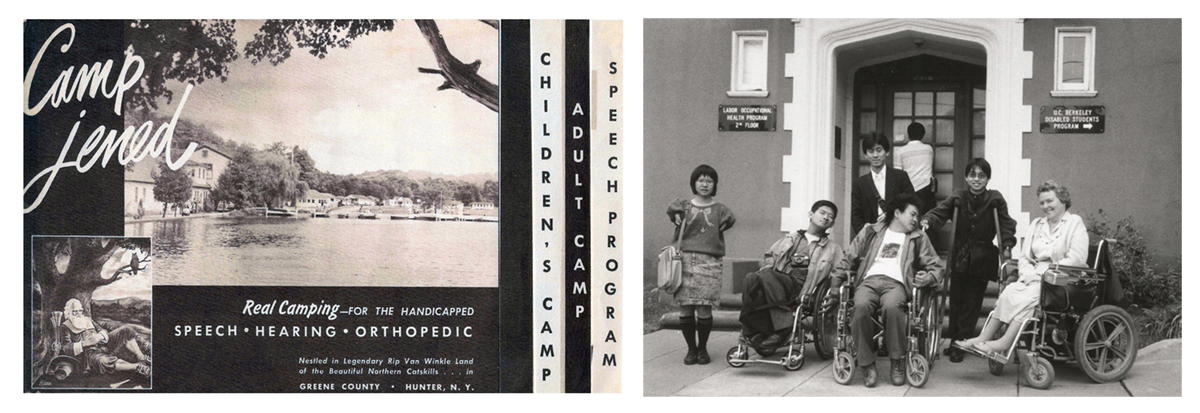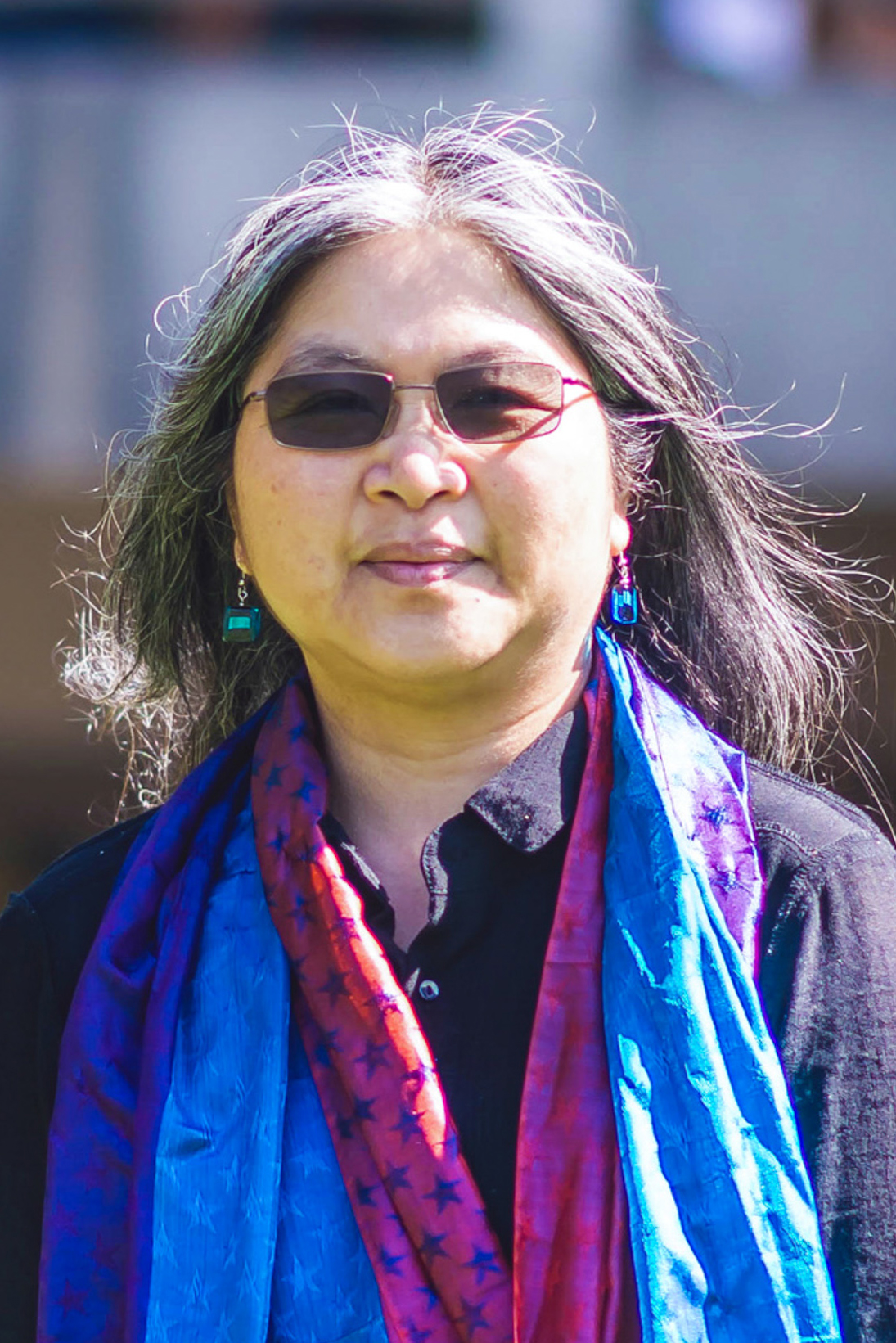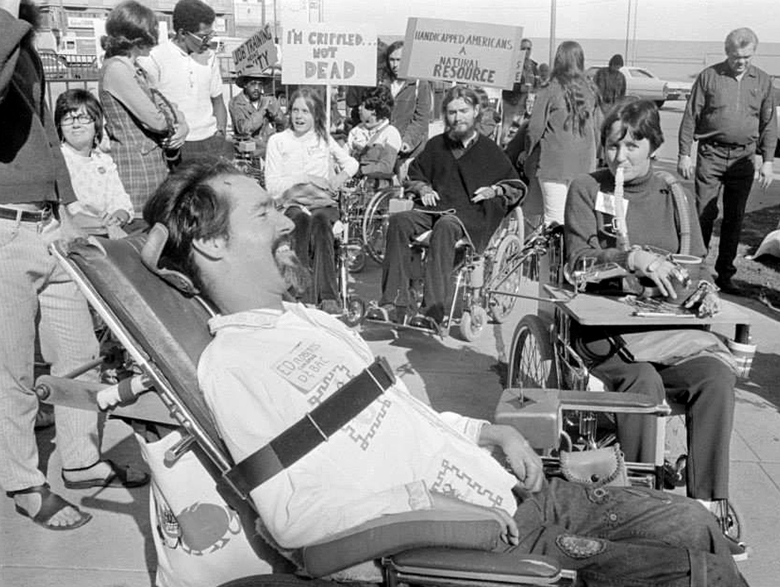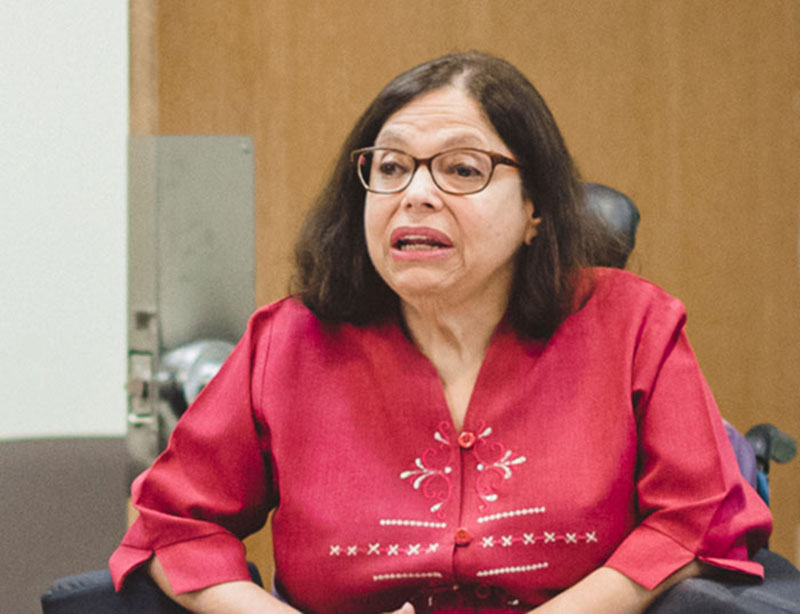
Summer camp is a rite of passage for many kids in the United States. Swimming. Arts and crafts. Long conversations in the bunkhouse. And maybe even some precious memories to carry with you for a lifetime.
For the campers and counselors at Camp Jened that experience meant even more. Jened was a sleepaway camp for people with disabilities that originally operated in upstate New York from 1951 to 1977. Amid the modest buildings and overgrown fields, the young people encountered something radical: a world that was built to include them, rather than ignore them.
That experience — of equality, community, and empowerment — was the spark that ignited a revolution. Several Camp Jened alums became key figures in the disability rights movement in the U.S. They led one of the most impressive civil rights crusades in history, fighting for equal treatment under the law and reshaping the country’s public spaces. Their work ultimately led to the passage of the 1990 Americans with Disabilities Act.
“The wild thing is that this camp changed the world,” said Jim LeBrecht in the award-winning 2022 documentary Crip Camp: A Disability Revolution. “And nobody knows its story.” LeBrecht, a Camp Jened alum, and co-director Nicole Newnham recount that extraordinary story in the film through an array of archival footage.
Crip Camp is this year’s featured work for UC Berkeley’s On the Same Page program. Each fall, the popular initiative features a work for new students to engage with through a variety of programs and events during the semester. To complement the selection, the UC Berkeley Library is hosting an exhibit that expands on the film’s themes, tracing the history of the disability rights movement from the camp to the Cal campus and beyond. A Camp, a Campus, and a Disability Revolution is on display starting Sept. 13 in Doe Library’s Bernice Layne Brown Gallery. An online version of the exhibit will be available in spring 2024.
A Camp, a Campus, and a Disability Revolution
Where: Doe Library’s Bernice Layne Brown Gallery
When: Through August 2024, with exceptions; the gallery is open the same hours as Doe Library.
Check the hours before you go.
Cost: Free

“I wanted to include the voices of the community and their allies as much as possible,” said Corliss Lee, the American Cultures librarian and curator of the exhibit. “So you’ll see a lot of quoted materials, from oral histories to book selections, to let people speak for themselves.”
Many of the exhibit’s materials come from The Bancroft Library’s Disability Rights and Independent Living Movement Project. To her surprise, Lee found items from Camp Jened itself in the library’s collection, including original brochures, newsletters, and artwork by campers. Most of these items were given to Bancroft by author and activist Denise Sherer Jacobson, an alum of Camp Jened. Sherer Jacobson is one of Crip Camp’s protagonists, and delivers some of the funniest one-liners in the film. She also interviewed many of the leading lights of the movement for Bancroft’s Oral History Center.
Testimony from the front lines
Transcripts of oral histories from a variety of interviewers feature heavily in the exhibit, including a conversation with Ed Roberts ’64, M.A. ’66, UC Berkeley’s first student with a severe disability and co-founder of the Center for Independent Living. Oral histories are complemented by other first-person sources, such as a memoir by Judy Heumann M.P.H. ’75. Heumann, a Jened alum, is often referred to as the mother of the disability rights movement. Bancroft also holds the personal papers of both Roberts and Heumann.

Theresa Salazar, Bancroft’s curator for Western Americana, said the exhibit showcases the depth of the library’s archival collection, and documents a movement that grew out of the university. “Many of these individuals had attended UC Berkeley or were active in the Independent Living movement in Berkeley,” Salazar said. “They used all platforms they could to bring to the forefront their issues and demands.”
Protests were one of the activists’ most effective tools. The 504 Sit-in is covered in great detail in both Crip Camp and the exhibit. On April 5, 1977, more than 500 people attended a rally outside the San Francisco Federal Building to demand the signing of regulations for Section 504 of the Rehabilitation Act of 1973. The section would outlaw discrimination against people with disabilities within any federally funded program. That night, 150 people with disabilities and their supporters began a 24-day occupation of the building that resulted in the achievement of their goal.
“We showed strength and courage and power and commitment,” Kitty Cone said in the documentary, “that we the shut-ins, or the shutouts, we the hidden, supposedly the frail and the weak, that we can wage a struggle at the highest level of government and win.”
Cone, one of the lead organizers of the sit-in, shared strategies the group used in its advocacy as part of an oral history from the late ’90s, excerpts of which are displayed in the exhibit.
Aileen Liu, the director of curricular engagement initiatives in Berkeley’s College of Letters & Science, said Cal’s connection to these events is inspiring. Liu leads the On the Same Page program team, and shepherds the cross-campus committee that selected Crip Camp as its centerpiece work this year. (You can watch the film for free on the program’s website.) Student feedback on the selection was unanimously positive.
“The students were so proud of this history,” she said. “They were saying things like, ‘I hadn’t heard of the 504 Sit-in. I had no idea that Berkeley was a part of this story.’”
Liu added that it’s particularly valuable to get students talking about the film’s themes now, as more students with disabilities access services on campus.
Community on campus
A large section of the exhibition is devoted to the history of Berkeley students with disabilities, and their work to make campus more accessible. The origin stories of pioneering organizations, such as the Disabled Students’ Program, or DSP, founded in 1970, are told through the words of student leaders. Roberts, as well as Cathy Caulfield, John Hessler ’66, M.A. 70, and others, recount the challenges and successes of their work.
Lee, the exhibit curator, marvels at how many discoveries she made in the course of her research. She was ecstatic, for example, to find the original application used to establish the Rolling Quadriplegics student

organization. The form, dated from 1970, has the signatures of Herbert Willsmore ’73, president of the group, and other leaders. The group was among the first to lobby the Department of Rehabilitation for curb cuts at intersections. Willsmore, whose papers are held at Bancroft, was also influential in the establishment of the DSP.
For Ann Wai-Yee Kwong ’15, coordinator of the Disability Cultural Community Center at UC Berkeley, telling these stories is essential. “Every community and movement has its elders, and I think it’s important for us to learn from them,” she said. “(We) recognize the time and … effort and labor that they contributed to the movement. And also ask how we can continue to learn and build upon that great work.”
Kwong was one of several advisers for the exhibit, consulting on materials and offering suggestions for making displays accessible. She said the center’s mission is to create a safe and welcoming environment for the disability community. And its comfy couches and versatile rooms certainly seem well-suited for community-building. The center, which falls under the broader DSP umbrella, is one of many campus services for students, staff, and faculty with disabilities highlighted in the exhibit.
Kwong’s work also includes raising awareness about the fact that ableism still exists on campus and in the world beyond it.
Heumann, whose incredible journey took her from camp counselor to special advisor for international disability rights at the U.S. State Department, recognized that there was always more work to be done. She continued that work until her death earlier this year.
“I wanna see a feisty group of disabled people around the world,” she said in Crip Camp, with her unmistakable New York accent. “If you don’t respect yourself, and if you don’t demand what you believe in for yourself, you’re not gonna get it.”